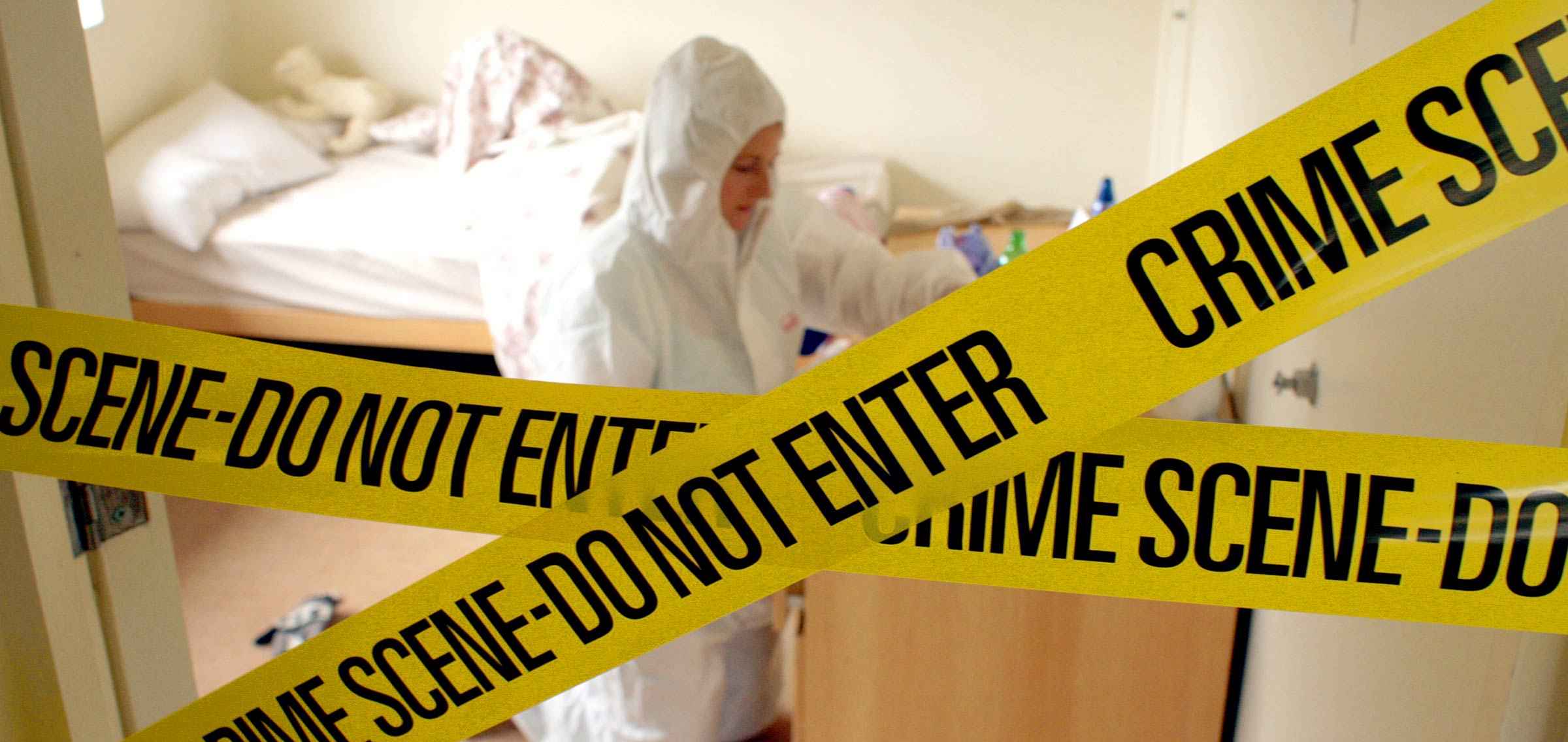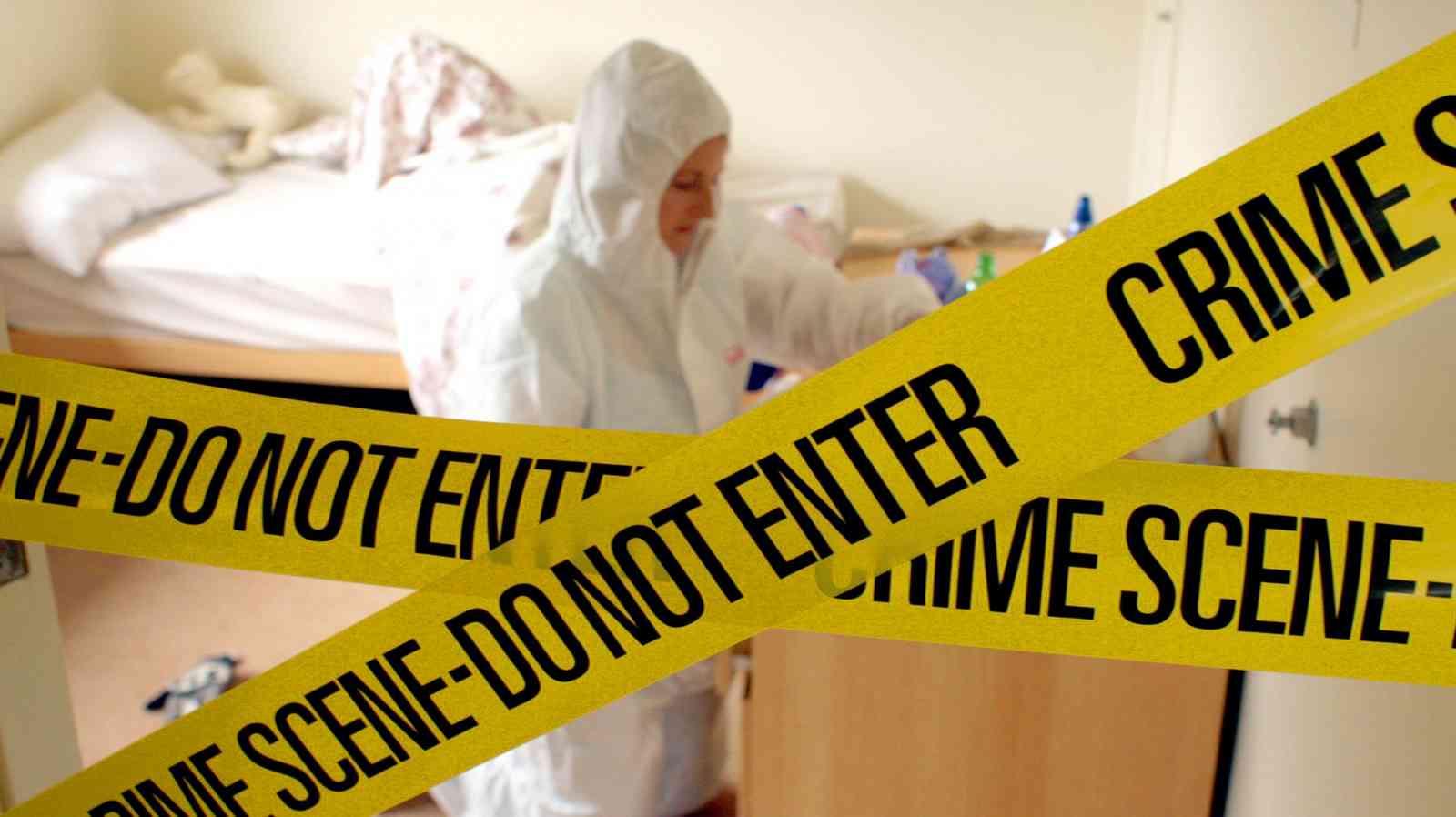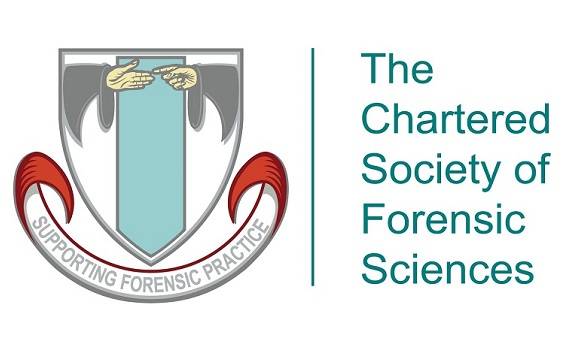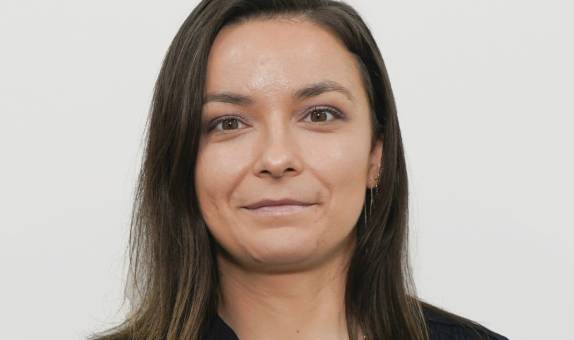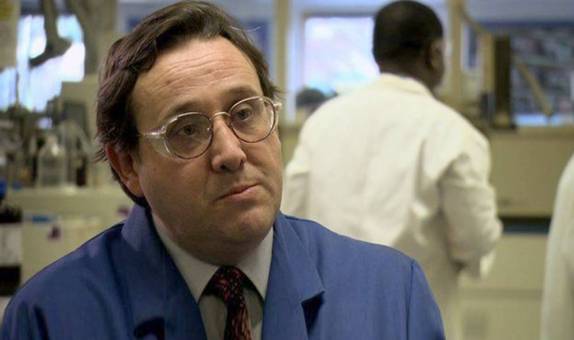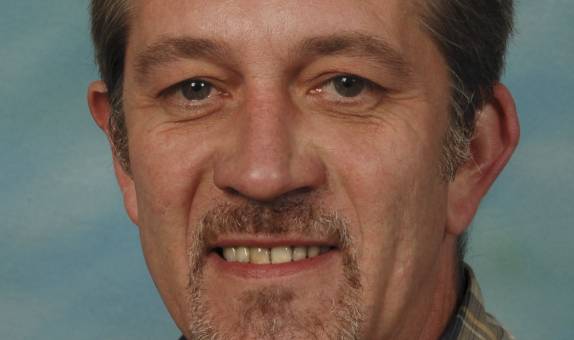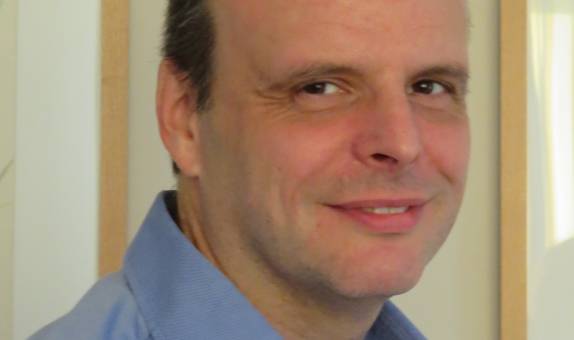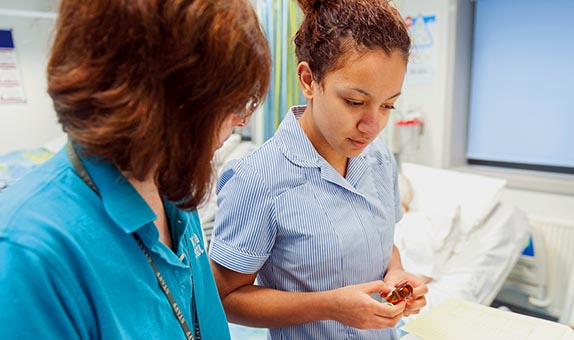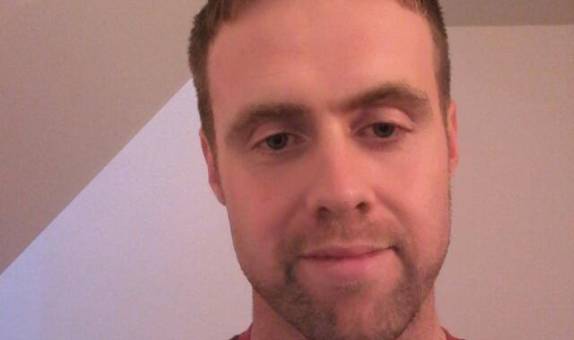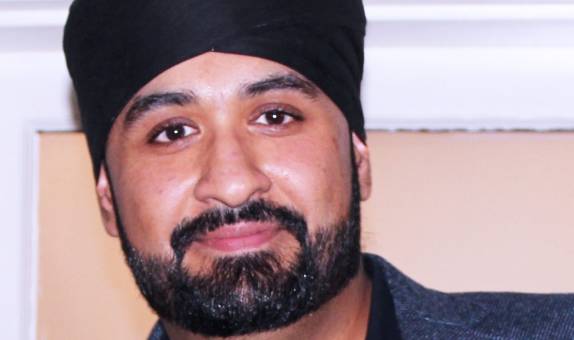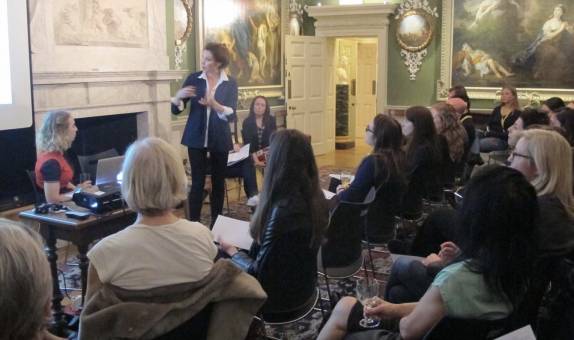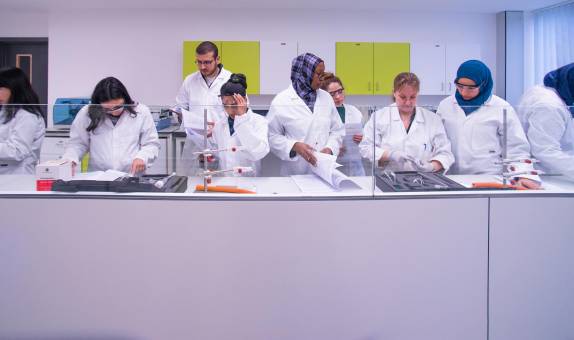Forensic Science BSc (Hons)

Teaching Excellence Framework (TEF) Gold award
Our commitment to high quality teaching has been recognised with a TEF Gold rating. The University has received an overall rating of Gold, as well as securing a Gold award in the framework's two new student experience and student outcomes categories.
Why choose this course?
How is scientific evidence gathered from a crime scene? How is it analysed and used in investigation? How is it interpreted and presented in court?
This course prepares you for a career as a forensic scientist. Case studies, evidence interpretation, fieldwork and laboratory training cover all aspects of investigating criminal offences. These include crime scene processing, forensic archaeology, drugs, toxicology, DNA profiling, body fluids, entomology, fibres, fire investigation and ballistics.
You'll also have an introduction to criminal law, which includes cross-examination in a Crown Court setting.
Specialist topics include blood pattern analysis (BPA), gunshot residue detection, counterfeits and forgeries, and the analysis of trace evidence. In addition, this course also provides additional industry recognised certificates in BPA, forensic toxicology and DNA profiling at no extra cost.
We have recently updated our modules to enhance student-centred teaching and align course content with industry needs, helping you become a future-proof graduate.
| Attendance | UCAS code/apply | Year of entry |
|---|---|---|
| 3 years full time | F410 | 2025 |
| 4 years full time with professional placement | F412 | 2025 |
| 4 years full time including foundation year | F411 | 2025 |
Please note: Teaching on this course may take place on more than one KU campus.
| Main Location | Penrhyn Road |
Reasons to choose Kingston University
- This course is accredited by the Chartered Society of Forensic Sciences (CSFS).
- Kingston is ranked top in London for Forensic Science by the Complete University Guide 2025 and the New Scientist Careers Guide 2024.
- Kingston is ranked in the top 10 in the country for Forensic Science (Guardian University Guide 2025).
- We've received four commendations from the CSFS for our cutting-edge forensic technology and the innovative student training programmes.
Accreditation
The 410 course is accredited by the Chartered Society of Forensic Sciences for the component standards in Interpretation, Evaluation and Presentation of Evidence; Laboratory Analysis; and Crime Scene Investigation. This course is currently accredited until March 2025, when accreditation will undergo renewal. When you graduate you are eligible to apply to be an Associate of the Chartered Society of Forensic Sciences (ACSFS post-nominals). Having completed appropriate continuing professional development in a forensic science workplace, you can also become a Professional Member (MCSFS). Find out more from the Chartered Society of Forensic Sciences website. The 4 years full-time including a foundation year route is not accredited.
The scene of crime house
The scene of crime house is a real semi-detached house located on-site. Its five rooms contain various types of mock crime scenes, including burglary, arson, assault and sexual crime.
Students have to pick up evidence carefully and transport it back to the labs for preservation and analysis. Even the garden contains evidence and is used by the forensic team's archaeologist for teaching.
The crime scene house is also extensively used to teach Bloodstain Pattern Analysis (BPA).
The library offers:
- subject libraries, plus a free inter-library loan scheme to other libraries in the Greater London area;
- online database subscriptions; and
- a growing selection of resource materials.
Facilities
We have cutting edge facilities in DNA analysis, archaeology, questioned documents, toxicology and drug confirmation. Our equipment and instrumentation are based on those used in real life casework examinations, we also have a designated crime scene house.
What you will study
Year 1
Year 2
Year 3
Year 1 offers a broad understanding of the major branches of biology and biochemistry. You will develop key laboratory skills, and learn to give detailed scientific explanations for the theory and practices used in modern forensic science.
Core modules
Analytical Techniques in Forensic Science
30 credits
This module will introduce you to the key analytical techniques and expertise of different forensic specialists. This module has a focus on the analytical techniques used in forensic investigations. You will learn about the various categories of forensic evidence, before developing your understanding of the underlying techniques used in forensic investigations.
You will also find out more about the emerging role of artificial intelligence in forensic science, covering its applications in evidence analysis and data interpretation. You will explore how AI can enhance traditional techniques while considering ethical implications.
Introduction to Forensic Science
30 credits
This module introduces you to the multifaceted world of forensic science, providing an overview of key disciplines and their roles in criminal investigations. The module covers various forensic specialities, including DNA analysis, toxicology, fire investigations, skeletal anatomy, post-mortem changes, and wildlife forensics.
You will explore the fundamental principles and methodologies used in these disciplines, engaging in hands-on learning through crime scene practicals, human anatomy practicals, and workshops. This practical approach aims to develop your essential skills in evidence collection, preservation, and interpretation.
The module emphasises critical thinking and analytical skills in forensic science. You will apply your knowledge to real-world scenarios, fostering problem-solving abilities and understanding the challenges faced in forensic investigations. You will combine collaborative work with classmates, and independent research to deepen your understanding and prepare you for future academic and professional endeavours.
You will also learn about the ethical considerations and legal frameworks that govern forensic practice, gaining insight into the role of forensic scientists in the criminal justice system and the importance of scientific rigour and impartiality.
Scientific and Laboratory Skills
30 credits
This module provides a firm foundation in the general scientific and laboratory skills students require to successfully complete their programmes of study.
A significant component of the module consists of the development and demonstration of core technical/practical skills through familiarity with the laboratory environment through hands-on learning.
This module will also introduce you to Future Skills through engagement with the Navigate programme introducing the key graduate attributes required in developing your professional development portfolio in the biosciences. The Future Skills concepts and activities will support you in developing and evidencing your practice, scientific analytical/problem-solving, teamworking, digital competency, practical and numeracy skills.
You will be supported by themed tutor meetings and peer support tutee teams, enabling you to work on tasks to develop your graduate attributes.
Genes to Tissues
30 credits
This module introduces basic cell biology of prokaryotes and eukaryotes, genetics, germ layers, and tissue types in the human body, as well as various microorganisms.
You will experience practical sessions in a state-of-the-art laboratory, on microscopy, histology, cytogenetics and microbiology, enabling you to develop practical skills in the correct use of microscopes, examining and studying chromosomes, prokaryotic and eukaryotic cells, microbes and tissues, interpreting, and recording biological data, and build upon your knowledge gained from lectures.
This module provides a foundation for advanced modules in cell biology, anatomy, physiology, genetics, and microbiology.
Year 2 introduces specialist topics in forensic science. These include DNA and human identification, advanced crime-scene analysis, counterfeits and forgeries and the application of analytical techniques to the analysis of trace evidence such as fire, fibres, glass and fingerprints. You will also be introduced to criminal law and receive expert witness training. This will culminate in the cross-examination of expert witness testimony and opinion in a mock courtroom setting at Kingston Crown Court.
Core modules
Research and Employability Skills in Forensic Science
30 credits
This module will help you further develop your scientific and employability skills, and embed these skills within the real-world applications of forensic biology. You will develop your Future Skills through engagement with the Explore assessment, applying problem-solving to real-world problems within forensic biology.
You will also expand your knowledge of forensic biology with a focus on key methods of human identification, and contact trace evidence, associated with the human skeleton, tissues and fluids, including DNA analysis.
You will foster a critical evaluation of the applicability and reliability of key forensic techniques by exploring different methods through scientific research and case practice.
Key concepts in effective use of biological evidence in forensic investigations, such as the use of controls, reference samples and databases, statistical analyses, and reduction of bias and error will also be addressed.
This will help you understand the importance of these skills within the forensic science sector, and you will explore different employability routes in the industry.
You will supported by tutor meetings, enabling you to work on tasks and assessments which develop your graduate attributes.
Crime Scene, Evidence and Law
30 credits
This module will cover the various roles involved within the professional field of forensic science, ranging from those at the crime scene all the way to the expert witness.
You will gain practical experience of observation and recording, evidence collection, preservation, documentation, and chain of custody through a series of simulated crime scenes. The impact that the crime scene has on the integrity of evidence will be explored through real forensic case studies, where techniques used to analyse evidence will be complemented from teaching across the other Level 5 modules. You will use the ‘Case Assessment and Interpretation' (CAI) model in relation to prosecution and defence scenarios and this skill will be developed through mock trials with law students.
The module will also introduce you to those statistical models used by forensic scientists in the court of law as well as gain an understanding of the importance of presenting to a lay audience such as a jury. You will develop your awareness of future employment opportunities through the exposure to regulations and standard operating procedures utilised by Forensic, Law and UK Criminal Justice Systems, as well as working with law students.
Counterfeits, Fakes and Forgeries
30 credits
This module will introduce you to the forensic analysis of counterfeits, fakes and forgeries. You will start by learning about document analysis and its importance in a forensic investigation. Examples of topics within forensic document analysis include the analysis of handwriting, signatures, inks, indentations, writing implements, printed documents and digital media. You will explore counterfeit case studies involving drugs, consumer products and art and antiques.
You will learn how counterfeits and forgeries are produced and how they are examined. You will practice the investigation techniques used in cases involving counterfeit documents and fraud.
Analytical Techniques for Molecular Science
30 credits
This module immerses you in the world of analytical science applied to problem solving in biochemistry, clinical chemistry, forensic analysis and pharmaceutical science applications. It develops critical thinking in being able to identify the best approaches used to prepare samples, collect results and analyse data, whether it is quantitative or qualitative in various scenarios. You will build your knowledge, practical skills and interpretation skills whilst implementing the analytical process model using scenario-based learning.
Year 3 provides you with the opportunity to study further forensic topics, including the analysis of body fluids, advanced DNA analysis, forensic archaeology, examination of crime scene exhibits, drugs, toxicology, fire investigation and ballistics.
You will also undertake an independent research project which will allow you to hone your skills in a specific area of forensic science which includes, but is not limited to, DNA analysis, crime scene investigation, forensic toxicology and drug analysis, GSR analysis, skeletal anatomy, analysis of fire evidence, questioned documents and document fraud.
Core modules
Biological Evidence - Advanced Techniques
30 credits
This module focuses on the detection, recording, and interpretation of biological trace evidence, emphasizing blood, semen, and saliva. Diverse case scenarios from volume to major crime will help you gain knowledge and skills to critically assess biological evidence using various tests and instrumentation.
The curriculum blends lectures, hands-on laboratory sessions, simulated crime scenes, and interactive workshops, complemented by online resources. You will investigate your own case, applying advanced forensic techniques including Blood Pattern Analysis, DNA profile interpretation, and evidence evaluation. This culminates in preparing an expert witness statement adhering to Criminal Procedure Rules (Part 19) and presenting in a mock court scenario.
Forensic Science Project
30 credits
Your independent project forms a very important part of your degree programme. There are several types of projects that may be offered to you: a laboratory or field-based project, data projects involving acquisition of data and information from surveys, computer simulations or bioinformatics, or a systematic review of research literature that includes the collection, analysis, and original presentation of reported research data. Previous topics chosen include forensic toxicology, bloodstain pattern analysis, DNA profiling, trace evidence, GSR analysis, forensic anthropology and archaeology.
Your project will include a review and critical evaluation of qualitative and quantitative information and data to address a hypothesis or research question, and the production of a written report.
Forensic Chemistry and Trace Analysis
30 credits
This module explores in greater detail the analytical and forensic techniques encountered in trace and contact evidence case work analysis. You will gain an oversight into the quality framework applied in Forensic case work to ensure that the integrity of evidence is maintained, and then focus on several areas such as drugs of abuse, fibre analysis, fire investigation, explosives and ballistics.
Forensic Archaeology
30 credits
This module will introduce you to the role of the forensic archaeologist and the broad range of cases where archaeological techniques may be used. These techniques include aerial and geophysical survey, excavation and recording of burials and the outdoor crime scene, and the scientific dating of both questioned objects and human remains. You will embed your learning through lectures, case-based workshops and outdoor practicals, involving scenarios such as locating a missing person, outdoor crime scenes and clandestine burials.
Foundation year
If you would like to study one of our science degrees at Kingston University but are not yet ready to join the first year of a BSc (Hons) course, you can include an extra foundation year within your chosen degree. Please see the science foundation year course page for details of modules.
Future Skills
Knowledge to give you the edge
Embedded within every course curriculum and throughout the whole Kingston experience, Future Skills will play a role in shaping you to become a future-proof graduate, providing you with the skills most valued by employers such as problem-solving, digital competency, and adaptability.
As you progress through your degree, you'll learn to navigate, explore and apply these graduate skills, learning to demonstrate and articulate to employers how future skills give you the edge.
At Kingston University, we're not just keeping up with change, we're creating it.

Entry requirements
Teaching and assessment
Scheduled learning and teaching on this course includes timetabled activities including lectures, seminars and small group tutorials.
Who teaches this course
This course is delivered by the School of Life Sciences, Pharmacy and Chemistry.
The School of Life Sciences, Pharmacy and Chemistry offers an outstanding and diverse portfolio of undergraduate and postgraduate programmes in biological and biomedical sciences, chemistry, forensic science, pharmacy, pharmacological and pharmaceutical sciences, and sport science and nutrition.
We've invested heavily in the development of new facilities including laboratories for teaching and research to provide students with access to ultra-modern equipment in a wide range of teaching facilities.
Postgraduate students may run or assist in lab sessions and may also contribute to the teaching of seminars under the supervision of the module leader.
Course fees and funding
Additional costs
Depending on the programme of study, there may be extra costs that are not covered by tuition fees which students will need to consider when planning their studies. Tuition fees cover the cost of your teaching, assessment and operating University facilities such as the library, access to shared IT equipment and other support services. Accommodation and living costs are not included in our fees.
Where a course has additional expenses, we make every effort to highlight them. These may include optional field trips, materials (e.g. art, design, engineering), security checks such as DBS, uniforms, specialist clothing or professional memberships.
After you graduate
You'll be prepared to work in a range of environments, including forensic laboratories, policing, analytical chemistry laboratories, hospitals and private consultancies.
What our graduates say
Kingston University graduate Susan Richmond talks about her experiences on the Forensic Science:
What our students say
Key information set
The scrolling banner(s) below display some key factual data about this course (including different course combinations or delivery modes of this course where relevant).
Course changes and regulations
The information on this page reflects the currently intended course structure and module details. To improve your student experience and the quality of your degree, we may review and change the material information of this course. Course changes explained.
Programme Specifications for the course are published ahead of each academic year.
Regulations governing this course can be found on our website.
